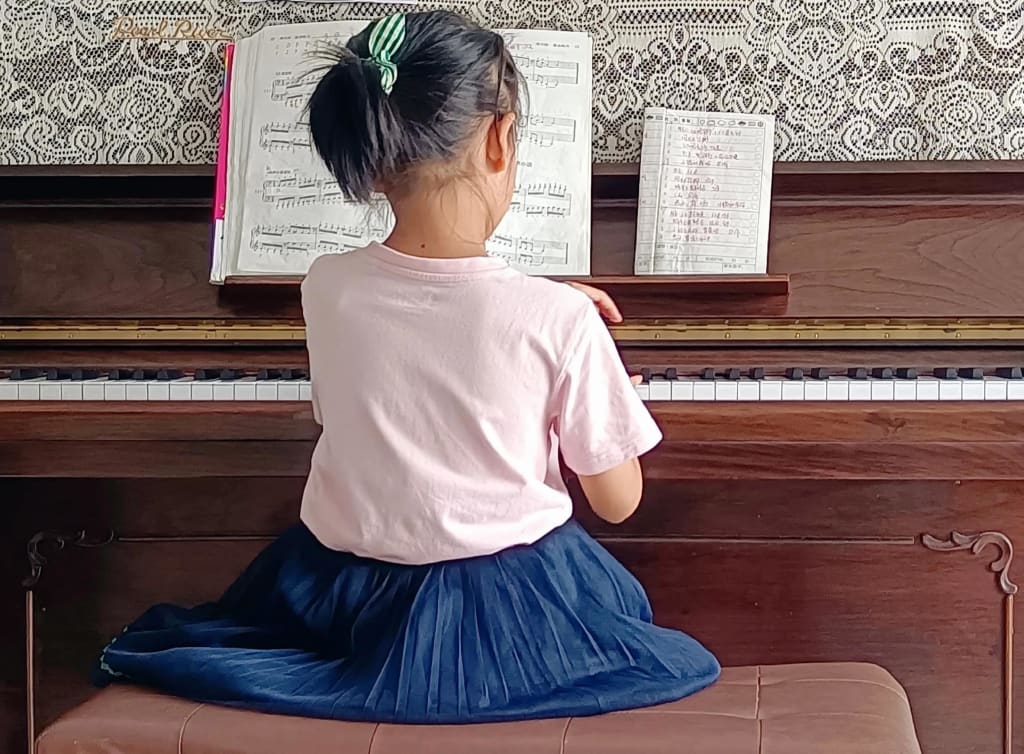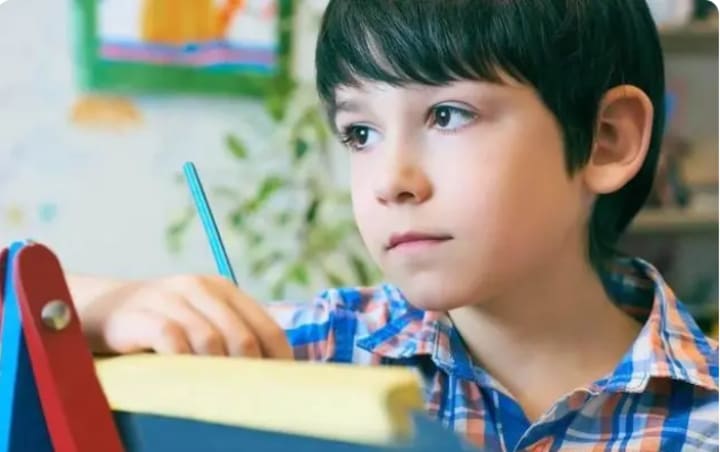"Talking a lot" and "talking less" children, the gap between the 3 points when they grow up
The "talkative" and "quiet" child

I saw a question on a question-and-answer platform: "talk a lot" and "talk less" on the children's influence.
I think of an interesting experience, once with my girlfriend to go shopping, into the elevator when I see the 5th floor has been pressed light, so directly stand still. A little girl of about 3 years old shouted: "Auntie, you haven't pressed which floor yet".
The girgirlfriendiled and replied: Thank you li, little princess, aunties go to the 5th floor, there are already good people to help us press the light.
When you get off the elevator, your girlfriend says: this child must be more than just mom at home, dad, grandparents, or grandma and grandpa must be involved in bringing up the baby.
Did I ask why? The girlfriend calmly replied: you see her talk more than not recognize, that usually there must be a lot of people around, often talk to him. The person with the child, because of the usual conversation with people less, language input is not enough, often expressed not out, rarely will show themselves in front of people.
Although my girlfriend's reasoning is somewhat arbitrary, I have to admit that children "talk a lot" and "talk less", indeed in some ways affect the behavior.
01
"There are 3 gaps between children who talk a lot and those who talk less when they grow up
Gap 1: IQ gap
Anthropologists Betty Hart and Todd Raisley have done a famous "30 million word gap" survey.
They spent 2 years investigating in detail the cognitive changes of children from 2 to 4 years old from all walks of life, and eventually found that children born in poor families would hear 30 million fewer words in English by the age of four compared to children born in wealthier families.
This gap in language input results in more "words" being spoken by richer children in their age group. Even more, coincidentally, the survey shows that the IQ of children from poor families is 79, while those from rich families are 117.
When the children were 10 years old, the researchers did a return visit. The results showed that those children with large vocabularies had a more peaceful perception of the world and better academic performance.
This is the famous "30 million word gap" experiment in psychology. In a sense, this experiment also proves to a certain extent that "more words, fewer words" is external feedback on the child's cognitive ability and IQ.
Gap 2: Learning ability gap
Dr. Brenda Fitzgerald, a renowned obstetrician, and gynecologist, in her TED, talk "How does early language development affect a person's life? gives this conclusion.
Children who are language-poor and do not build up a certain vocabulary when they are young will have a hard time reaching the appropriate reading level by the 3rd grade. Later on, as children get older, language poverty will not only affect their reading level but also their learning efficiency and comprehension.
In life, we all like children who are articulate and think they are smarter than others. It is indeed the "speech center" of the brain that controls a child's language development.
It is located in the cerebral cortex and covers almost the entire cerebral cortex, including the motor speech center, the auditory speech center, the written speech center, and the visual speech center.
Only when these four parts work together can a child quickly understand what is being said and give positive feedback. Therefore, articulate children have more neuronal links and stronger connections in these parts of the brain than other children.
As a result, children who are "more talkative" have stronger "visual, auditory, writing, and motor" skills than their peers, and naturally, their learning ability gradually differs.

Gap 3: Core Competitiveness Gap
Tsinghua professor Peng Kaiping mentioned in a talk show: the future society needs more talents that cannot be replaced by artificial intelligence, which involves two key aspects, one is thinking and the other is communication. Deeply convinced!
Thinking, the machine lacks sufficient human imagination, so the future of such talent can not be replaced by artificial intelligence. Communication is because human speech has a lot of magical charm, the machine can not express the human full of emotion, the future to want to children are not eliminated by society, the development of excellent communication skills is extremely important.
For children, the first step in communication is to dare to speak, even if it's wrong. In this regard, children who are "less talkative" must learn from children who are "more talkative".
You will find that children who talk a lot are generally more emotionally intelligent, and this is the result of their step-by-step practice. Because they talk a lot, they can talk with all kinds of people, which gives them rich feedback.
Therefore, "talkative" children are more likely to know what kind of topics will be more attractive and what kind of topics are more suitable for their thinking. Slowly, they will become "highly intelligent" and have good communication skills.
02
How to make children from "less talkative" to "more talkative"?
All of the above shows that children who talk a lot are generally more capable when they grow up, but are children who talk less destined to be mediocre? Actually, no!
For one thing, this is only the average, many "less talkative" children are also very good.
The second is, as long as it is not a character flaw, in fact, many "less talkative" children still have the potential to become "more talkative".
Of course, letting silent children become eloquent just need time and effort, the following several small methods, parents may wish to try.
First, ask your child more open-ended questions
The most important thing to avoid is to ask closed questions to your child. For example: do you think mom is right? Is the meal good today?
This kind of conversation can easily kill the day, which is useless for children. We can try some open-ended questions, such as: How did you feel after you ate the meal mom made tonight? What do you think about it after watching this cartoon?
Such open-ended questions leave more room for the child to play. Unlike the previous two questions, which can be solved with "right" and "wrong", "delicious" and "not delicious".
It is important to note that when the child answers the question, even if the child is wrong, we parents should not rush to criticize. Instead, we should guide differently.
For example, I think your idea is very interesting, etc. With this language guidance, children will be more willing to chat with us.
Second, give children more "extended stories"
Children prefer to listen to stories, so parents can help their children expand the story as much as possible when chatting.
For example, if your child asks: Why is the moon the fullest at 15? You can not only talk about the dog eating the moon, but also tell him about rotation, satellites, stars, the history of rockets sent, black holes, the universe, the origin of species, etc.
Children's imaginations are so varied that the chats between parents and children are even more varied. We suggest that no matter what the problem is, more expansion points with children, will lead to many interesting topics, these topics bring knowledge and thinking, and will make children more willing to discuss with adults in depth.
Third, play "expression" games with children
I often play some "expression" games with Umi, such as taking out a picture book at random, turning a page, and making up a story according to the picture on the page. After the story is finished, we will also find fault with each other, which in effect adds many rounds of parent-child dialogue.
Sometimes we also assign each other a theme and ask each other to say a jingle to describe it. For example, a cup. You will say: cup cup cup is really powerful, small body energy; stomach full of water, give yourself for others everyone love.
This kind of small game can be played at any time, and the child also has a sense of accomplishment. Over time, it is obvious that her ability to express herself has improved.
So you see, "less talk" is not a big deal, as long as you use the right method, the child will slowly become "more talk" cheerful. I hope that the methods mentioned today, for the screen in front of you are useful ah ~
About the Creator
Bettye Lutz
Ascent must be inferior, self-esteem is too high can not achieve success, and therefore successful people must cultivate a calm mind, and focus on everything, which is the key to success. I like vocal music






Comments
There are no comments for this story
Be the first to respond and start the conversation.